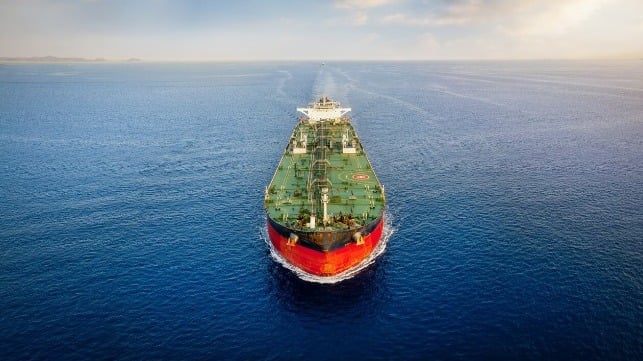The European Union approved its 18th package of sanctions against Russia related to the war in Ukraine, expanding its targeting of the energy, banking, and military sectors. The package, which is being called one of the strongest sanction packages against Russia, was approved after Slovakia dropped its opposition, but without the U.S. joining in on key elements.
The European Commission adopted steps to further reduce Russia’s energy income, which it highlights continues to provide a third of the Russian government’s revenues. Last month, Russia averaged production of nearly 9.2 million barrels of oil per day, according to the International Energy Agency.
The new package adopted a move that had been gaining momentum across Europe to lower the price cap on Russian oil. Critically, it also builds in an automatic and dynamic mechanism to modify the oil price cap to ensure it is effective.
Earlier this year, the price of oil fell below the $60 a barrel price cap, which had increased the flow of oil from Russia. The price cap was introduced in December 2022, banning access to transport, insurance, and reinsurance services for oil purchased and transported above the cap. It is seen as a driving factor in the growth of the shadow fleet.
To counteract the growth in shipments, the cap is being lowered to $47.60 per barrel, which the EU says aligns with the current global price of oil. It is almost 30 percent lower than today’s $67.60 per barrel benchmark price. The UK government quickly announced that it was following the EU and also lowering the price cap to the same level.
Media reports are indicating there had been a stronger push by some countries, and they had hoped the G7 and especially the United States would join in the efforts, to lower the price cap. The U.S. has remained largely on the sidelines, not increasing its sanctions against the shadow fleet. Earlier this week, Donald Trump announced he was giving Russia and Vladimir Putin 50 days to accept a ceasefire, or he said the U.S. would launch secondary sanctions against the buyers of Russian oil. At the same time, the U.S. announced an agreement with NATO and the Europeans for the purchase of additional weapons, which will be supplied to Ukraine.
President of the EU Commission Ursula von der Leyen responded to the adoption of the new package, saying, “The pressure is on. It will stay on until Putin ends this war.”
The EU is imposing further sanctions “across the shadow fleet value chain.” The new package directly lists 105 additional tankers banned from port entry and services. In total, the EU will have sanctioned 444 vessels.
The targeting of the shadow fleet goes further with the EU also for the first time listing an individual captain of a shadow fleet tanker and a “private operator of an international flag registry.” International companies managing and assisting the shadow fleet are also included, as is one entity in the Russian LNG sector.
The EU is also listing a refinery in India where Russia’s Rosneft is the main shareholder. It is also imposing a ban on the import of refined oil products made from Russian oil coming from third countries, except Canada, Norway, Switzerland, the UK, and the U.S. The EU says this closes a key backdoor.
The Nord Stream pipeline is also targeted with a full transaction ban, including for the provisioning of goods or services for completion or maintenance.
Despite the wide-reaching nature of today’s package, Russia scoffed at the package. Kremlin spokesman Dmitry Peskov told reporters that Russia “has built up an immunity to Western sanctions and adapted to them.” He predicted that the new moves would create negative consequences for countries that back them.
Reference : EU Adopts New Sanctions That Lower Oil Price Cap and Hit Shadow Tankers

